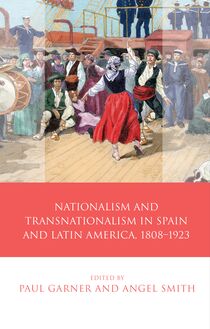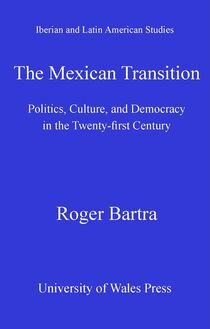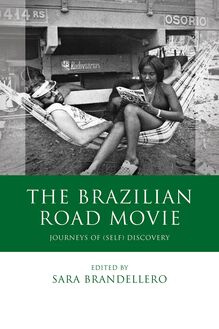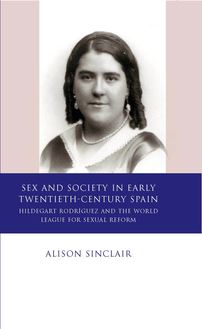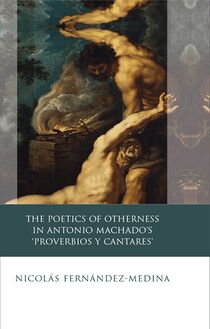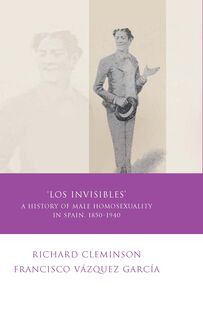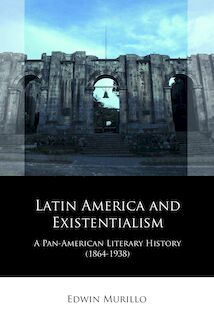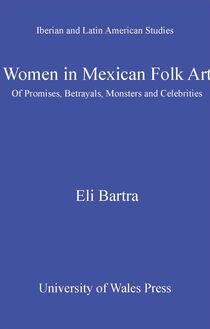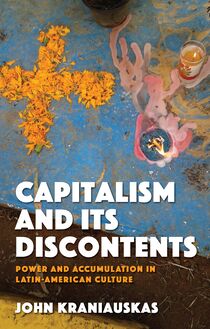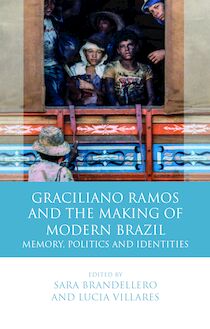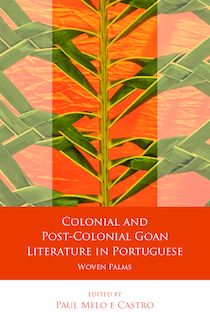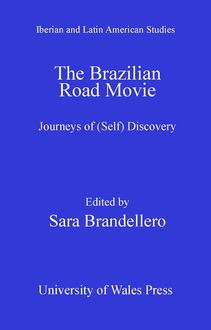Latin America and Existentialism , livre ebook
209
pages
English
Ebooks
2023
Vous pourrez modifier la taille du texte de cet ouvrage
Obtenez un accès à la bibliothèque pour le consulter en ligne En savoir plus
Découvre YouScribe en t'inscrivant gratuitement
Découvre YouScribe en t'inscrivant gratuitement
209
pages
English
Ebooks
2023
Vous pourrez modifier la taille du texte de cet ouvrage
Obtenez un accès à la bibliothèque pour le consulter en ligne En savoir plus
Publié par
Date de parution
15 juin 2023
Nombre de lectures
1
EAN13
9781837720026
Langue
English
Midnight Vallenato Floricanto Press 2019
Latin America and Existentialism is a preliminary intellectual history, prioritising literature and contextualising Latin American philosophical contributions from the 1860s to the late 1930s, decades that coincide with the canon’s foundational years. This study takes a Pan-American approach to move the critical focus away from the River Plate, a region that has received some critical attention. In doing so, it focuses on existentially-neglected writers such as Brazil’s Machado de Assis and Graciliano Ramos, José Asunción Silva from Colombia, Cuba’s Enrique Labrador Ruiz, and the Chilean María Luisa Bombal. Underappreciated Latin American philosophical voices and existentialism’s canonical perspectives allow the author to discuss the many problems concerning the experiencing ‘I’ of these authors, and to consider such existential themes as ethical vacuity, forlornness, the crisis of insufficiency, the conundrum of choice, and the enigma of authentic being. The concentration on Latin America’s existentially-hued interest in the human condition is an invitation to the reader to reconsider the peripheral status in the existentialism canon.
Acknowledgements
1. Latin America and Existentialism: An Introduction
2. Machado de Assis and the Art of Existential Deciphering
3. José Fernández as Modernity’s Impossible Patient
4. The Existential Exegete in Enrique Labrador Ruiz’s El laberinto de sí mismo
5. María Luisa Bombal and the Poetics of Inconformity
6. The Burden of Anonymity: Existential Toxicosis in Graciliano Ramos’s Angústia
7. Latin America and Existentialism: An Interlude
Works Cited
Publié par
Date de parution
15 juin 2023
Nombre de lectures
1
EAN13
9781837720026
Langue
English
IBERIAN AND LATIN AMERICAN STUDIES
Latin America and Existentialism
Series Editors
Professor David George (Swansea University)
Professor Paul Garner (University of Leeds)
Editorial Board
Samuel Amago (University of Virginia)
Roger Bartra (Universidad Aut noma de M xico)
Paul Castro (University of Glasgow)
Richard Cleminson (University of Leeds)
Catherine Davies (University of London)
Lloyd H. Davies (Swansea University)
Luisa-Elena Delgado (University of Illinois)
Maria Delgado (Central School of Speech and Drama, London)
Will Fowler (University of St Andrews)
David Gies (University of Virginia)
Gareth Walters (Swansea University)
Duncan Wheeler (University of Leeds)
Other titles in the series
Spain is different? Historical memory and the Two Spains in
turn-of-the-millennium Spanish apocalyptic fictions
Dale Knickerbocker
Blood, Land and Power: The Rise and Fall of the Spanish Nobility
and Lineages in the Early Modern Period
Manuel Perez-Garcia
Fantastic Short Stories by Women Authors from Spain and Latin America: A Critical Anthology
Patricia Grac a and Teresa L pez-Pellisa
Carmen Mart n Gaite: Poetics, Visual Elements and Space
Ester Bautista Botello
The Spanish Anarchists of Northern Australia: Revolution in the Sugar Cane Fields
Robert Mason
Paulo Emilio Salles Gomes: On Brazil and Global Cinema
Maite Conde and Stephanie Dennison
The Tlatelolco Massacre, Mexico 1968, and the Emotional
Triangle of Anger, Grief and Shame: iscourses of Truth(s)
Victoria Carpenter
The Darkening Nation: Race, Neoliberalism and Crisis in Argentina
Ignacio Aguil
Catalan Culture: Experimentation, creative imagination and therelationship with Spain
Lloyd Hughes Davies, J. B. Hall and D. Gareth Walters
Edwin Murillo, 2023
All rights reserved. No part of this book may be reproduced in any material form (including photocopying or storing it in any medium by electronic means and whether or not transiently or incidentally to some other use of this publication) without the written permission of the copyright owner. Applications for the copyright owner s written permission to reproduce any part of this publication should be addressed to the University of Wales Press, University Registry, King Edward VII Avenue, Cardiff CF10 3NS.
www.uwp.co.uk
British Library CIP
A catalogue record for this book is available from the British Library.
ISBN: 978-1-83772-000-2
eISBN: 978-1-83772-002-6
The right of Edwin Murillo to be identified as author of this work has been asserted in accordance with sections 77 and 79 of the Copyright, Designs and Patents Act 1988.
The publisher has no responsibility for the persistence or accuracy of URLs for any external or third-party internet websites referred to in this book, and does not guarantee that any content on such websites is, or will remain, accurate or appropriate.
Cover image: Las Ruinas , the ruined eighteenth-century Santiago Ap stol church in Cartago, Costa Rica, destroyed by an earthquake in 1910. John Mitchell / Alamy Stock Photo.
Contents
Series Editors Foreword
Acknowledgements
1. Latin America and Existentialism: An Introduction
2. Machado de Assis and the Art of Existential Deciphering
3. Jos Fern ndez as Modernity s Impossible Patient
4. The Existential Exegete in Enrique Labrador Ruiz s El laberinto de s mismo
5. Mar a Luisa Bombal and the Poetics of Inconformity
6. The Burden of Anonymity: Existential Toxicosis in Graciliano Ramos s Ang stia
7. Latin America and Existentialism: An Interlude
Works cited
Notes
Series Editors Foreword
______________
Over recent decades the traditional languages and literatures model in Spanish departments in universities in the United Kingdom has been superseded by a contextual, interdisciplinary and area studies approach to the study of the culture, history, society and politics of the Hispanic and Lusophone worlds - categories that extend far beyond the confines of the Iberian Peninsula, not only in Latin America but also to Spanish-speaking and Lusophone Africa.
In response to these dynamic trends in research priorities and curriculum development, this series is designed to present both disciplinary and interdisciplinary research within the general field of Iberian and Latin American Studies, particularly studies that explore all aspects of Cultural Production (inter alia literature, film, music, dance, sport) in Spanish, Portuguese, Basque, Catalan, Galician and indigenous languages of Latin America. The series also aims to publish research in the History and Politics of the Hispanic and Lusophone worlds, at the level of both the region and the nation-state, as well as on Cultural Studies that explore the shifting terrains of gender, sexual, racial and postcolonial identities in those same regions.
Acknowledgements
______________
To the most important people in my life, my daughters, Mariana and M a, you inspire all my work. To my wife Krysta, thank you for your reassurances and faith. My eternal gratitude to my mother, Carmen Rosa, who introduced me to reading. To my father, Olivier, and my brothers, Rob, Allan, Marco, thank you. To Eileen, Olger, Betsy, Doralee and Noem . This book is dedicated to you all.
I d like to express my thanks to the Institute for the Arts and Humanities at Penn State University, and the College of Arts and Sciences at the University of Tennessee-Chattanooga for the financial support to complete this book. Thank you to colleagues and friends in Miami: Hugo Achugar, Nelson Bass, Sabrina Dr i-Wengier, Elena Grau-Lleveria, Joanne Pol and George Y dice, all of whom have offered praise and comments for this project. Thank you to friends and colleagues in Pennsylvania: Jayne Brown, Sudip Ghosh, C sar Mart nez-Garza, Danielle Moser, Randy Newnham, Michele Ramsey, Kirk Shaffer, Miguel Stella and Rosario Torres. I am deeply indebted to Bel n Rodr guez-Mourelo for her generous support. My appreciation goes to my colleagues in the Department of Modern and Classical Languages and Literatures at the University of Tennessee-Chattanooga. I am grateful for the support of Joshua Davies. Thank you to the librarians in Austin, Bogot , Buenos Aires, Chattanooga, Houston, La Habana, Miami, Reading, Rio de Janeiro and San Jos .
I offer my sincerest gratitude to the University of Wales Press, and in particular, Sarah Lewis, for her advocacy, encouragement and belief in this project. Likewise, I extend my thanks to the anonymous readers and reviewers.
1
Latin America and Existentialism: An Introduction
______________
How should one live next to the people?
Does he act recklessly,
does he live, he who sustains and elevates men?
Nezahualc yotl 1
Every man is the son of his own works.
Don Quixote 2
This book begins with the premise that Latin American existentialism is misconstrued in the canon. A compulsory belatedness has been imposed in literary, philosophical and cultural studies. Thus, when the subject of existentialism has been broached, Latin America has been assumed to be subsequent to its European and US American counterparts. To address this inaccuracy, I have undertaken the investigation of existentialism in Latin America in the decades preceding the European boom of the 1940s, prioritising its expressions in literature while accounting for its philosophical presence. For this study s purposes, by existentialism (and its adjectival forms), I mean the cultural phenomena still intriguing many today with roots that go back at least to the nineteenth century. By existentialism, I am primarily referring to literature that showcases the disquieted individual who becomes aware of and attempts to reckon with their irrational and indifferent existence. As a result, disillusionment concerning the human condition often arises, manifesting as forlornness, anguish, estrangement and/or rage. 3
In this book, existentialism also means the reflection on and narrativisation of that problematic individual s experiential dissidence, as they cannot merely surrender, believe or subsist unconditionally. To be existential also connotes the double consciousness of human solitude (be it the product of God s non-existence, abandonment or disinterest) and our mortality. As Richard Schacht puts it, with existentialism, humanity has come to recognise that we are home alone in a godless and alien universe. There are no absolutes in the realms of value and morality. There is no happily ever after (p. 113). 4 Yet all is not lost! On the contrary, as Mexican philosopher Francisco Larroyo underscores, the vital energy at the heart of existentialism focuses not only on the greatness and misery of life, but also our inescapable fate, death, whose experience must be an incentive for action and a stimulus to accept resolutely our fundamental human condition . 5
Latin America s absence in the historiography of the formative years of existentialism is a puzzling lapse, given the seemingly interminable interest and output of studies in the field, an area of study whose anthropocentric premise helps explain its universal and contemporary appeal. As Jonathan Judaken reminds us quite directly, the Archimedean point for existentialism is thus the question, Who am I? (p. 6). I came across tangible evidence of this most human of preoccupations in Latin America, some years ago, in the famous colonial neighbourhood of Bogot known as La Candelaria. In this neighbourhood stands the world-renowned Botero Museum, the Plaza Bol var (home to the Metropolitan Basilica Cathedral), the University of the Andes and the Silva Poetry House, the former home of one of the foundational voices of Latin American existentialism, Jos Asunci n Silva. La Candelaria also houses the Gold Museum of Colombia.
Established in 1939, the museum serves as cultural memory and a testament to Native American artistry, knowledge and social complexities. The museum reinforces Pre-Columbian historical perseverance and reconstruc

